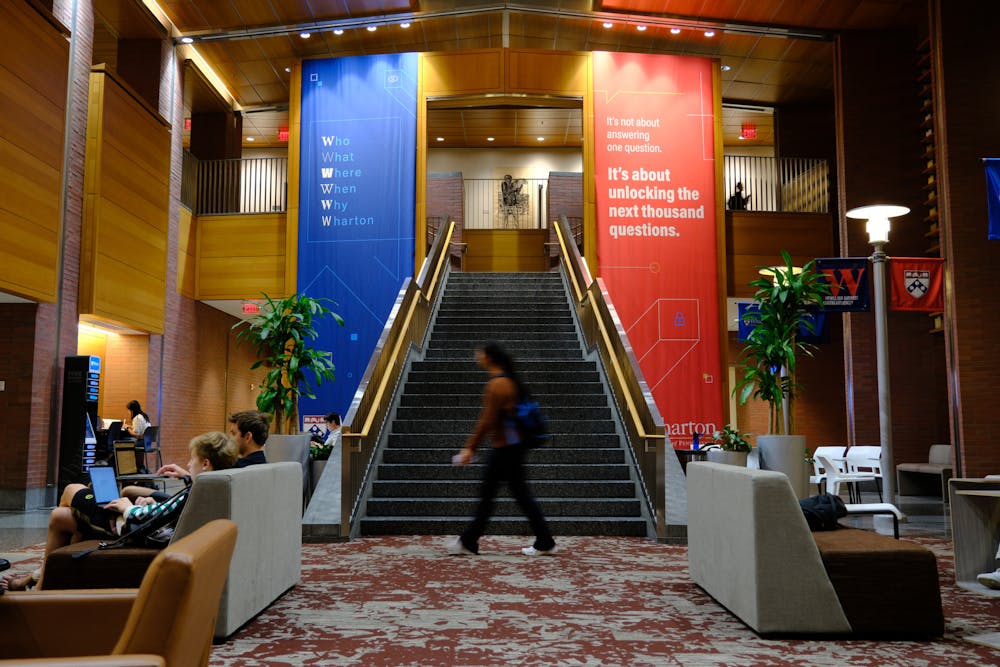I once asked a friend why he thought Penn was worth it. He replied, “They sell you belief — belief that you can land the best jobs in the market. And because people believe they can get those jobs, they actually go for them. That’s why they get them.” He said that his friends at other schools don’t even dream of the jobs we expect to get. That’s what sets Penn apart — not just the opportunities, but the expectation that you’ll take them.
The idea that attending a school like Penn grants you access to powerful networks and prestigious opportunities isn’t new. What’s more interesting — and more complicated — is what happens when that prestige becomes the defining thread of our trajectory.
At Penn, we are surrounded by ambition. We chase top firms, big brands, and powerful roles, often jumping directly from one ivory tower to another: from an elite university to an elite company. And there’s nothing inherently wrong with that. Part of Penn’s promise is to open those doors.
But what happens after the leap? What happens when brand names and ambition are prioritized over experience and growth? What does it do to us and to the industries and institutions we enter, when belief becomes a substitute for experience?
The ability to learn quickly, adapt across fields, and navigate ambiguity is a real strength, and it’s part of why consulting firms like McKinsey, Bain, and BCG recruit so heavily from Ivy League schools. In environments that demand fast thinking and constant reinvention, generalist problem-solvers are invaluable.
But there’s a difference between being able to think fast and having deep expertise. Brand names, whether they are universities or companies, can sometimes give the illusion that experience has already been earned, when in reality, it still needs to be built. If we mistake early access for mastery, we risk confusing potential for preparedness.
It’s not that ambition or adaptability are problems. It’s that when the world increasingly runs on credentials and confidence, it becomes easy to overlook what still takes years to cultivate: judgment, wisdom, and depth.
When you're told you're “elite” enough times — when you make one successful leap after another — you start believing you're ready for anything. But real mastery doesn’t come from collecting logos — it comes from wrestling with failure. Without it, we create a system where overconfidence is mistaken for competence: a dynamic psychologists call the Dunning-Kruger effect.
This effect describes how individuals with lower competence often overestimate their abilities precisely because they lack the experience to recognize what they don’t know. In leadership studies, this early overconfidence has a name: hubris, a dangerous overestimation of one’s capacity, often fueled by early successes and external validation.
We see the consequences of this dynamic everywhere. From corporate collapses like Theranos and WeWork, to leadership failures during the 2008 financial crisis, a pattern emerges: ambitious individuals rising quickly through elite pipelines, sometimes without the grounding or expertise necessary to sustain what they’ve built.
Elizabeth Holmes leveraged her Stanford background and Silicon Valley connections to secure hundreds of millions of dollars in investment for Theranos without real technical expertise. Adam Neumann’s WeWork spiraled into collapse after reckless expansion, powered more by investor belief in his charisma than in sound business fundamentals.
The self-reinforcing belief in their mastery, combined with incentives for short-term performance, has helped blind many leaders to the risks they were creating, contributing to systemic collapse.
And it’s not just history. We see the same dynamic unfolding in today’s startup culture: a world Penn students are deeply connected to. Venture capitalists now routinely pour millions into founders based more on their perceived prestige than on the strength of their ideas.
As Garry Tan, founder of Initialized Capital and now President of Y Combinator, put it: "VC’s are buying potential, not proof. Prestige sells. Sometimes it sells better than the product."
Paul Graham, co-founder of Y Combinator, has cautioned that founders who appear polished without substantive understanding can pose significant risks to startups. At Penn, where launching a startup or joining a venture-backed company is often seen as the ultimate career move, this pattern feels especially relevant. Belief and branding open doors quickly, but without operational grounding, many of these companies collapse just as fast.
At Penn, we are taught to believe: in ourselves, in our futures, in our potential. And we should. But belief alone isn’t enough. As we leap toward the next opportunity, we have a responsibility to build what prestige alone cannot guarantee: real depth, real judgment, and real mastery.
We owe it to ourselves and to the institutions we will one day lead to make sure we’re not just chasing ivory towers, but building something solid enough to stand.
MAHEE PATEL is a College first year studying philosophy, politics, and economics from Iselin, New Jersey. Her email is mtpatel@sas.upenn.edu









